Courting an international profile
Updated: 2015-12-18 08:29
By Zhang Yan(China Daily)
|
||||||||
|
Chinese lawyers visit Morgan, Lewis & Bockius, a law firm in Philadelphia, in November. The exchange with US counterparts was part of a program to train more domestic lawyers to deal with cross-border lawsuits. Provided to China Daily |
Moreover, 150 of the lawyers will be conversant with laws and regulations relating to the World Trade Organization, antidumping and antitrust issues, and the protection of intellectual property rights, while a further 30 will have received training in laws relating to energy and resources, such as maritime and space interests.
"In the past, some Chinese enterprises hired foreign lawyers to represent them in international legal cases, which not only cost a huge amount of money, but, because they were given access to core business secrets, also posed a serious risk to national economic security," Wang said, adding that even with the use of foreign legal talent, Chinese companies do not necessarily prevail in the courts.
 In September 2012, H.C. Starck GmbH - a Germany company that produces specialty metals, advanced ceramics and chemicals for the nuclear and aerospace industries - sued Ningxia Orient Tantalum Industry Co in the United States Eastern Federal Court in Philadelphia, alleging that the Chinese company had infringed its patents in the US.
In September 2012, H.C. Starck GmbH - a Germany company that produces specialty metals, advanced ceramics and chemicals for the nuclear and aerospace industries - sued Ningxia Orient Tantalum Industry Co in the United States Eastern Federal Court in Philadelphia, alleging that the Chinese company had infringed its patents in the US.
Starck demanded that Ningxia Orient Tantalum - a major State-owned enterprise - immediately cease to infringe its patents. It also demanded a large sum in compensation.
In response, Ningxia Orient Tantalum hired lawyers from a firm in Los Angeles. The move didn't pay off because the language barrier and cultural differences resulted in the lawyers making little headway. Despite its failure to proceed with the case, the firm still charged more than 3 million yuan ($463,000) for six months work.
"Even worse, the firm had a prejudicial attitude towards the Chinese company and mistakenly believed it to be guilty of infringement. The US lawyers were reluctant to push forward valuable ideas, and they failed to notify their client about court hearings until the court released the information on its official website," said Wang Zhengzhi, a senior partner at the Globe-Law legal firm in Beijing.
In March 2013, Ningxia Orient Tantalum decided to employ Wang Zhengzhi - who specializes in intellectual property rights and patent protection - to settle the case, and brought in another US law firm, Morgan, Lewis & Bockius, based in Philadelphia, to assist him.
"The priority for Chinese lawyers is to become more familiar with domestic companies and the related management laws and processes, so they will be better equipped to defend the companies' rights," he said.
Between April 2013 and October last year, Wang Zhengzhi and his team were in regular contact with Ningxia Orient Tantalum's executives and research staff, and were given access to restricted documents related to the company's core business, including research and development technology, consumption data and networks.
"When Chinese lawyers serve as 'project managers', they must be able to grasp the overall situation so they can formulate a litigation strategy. They must also supervise lawyers from overseas to ensure that they are able to assist their Chinese counterparts when writing legal documents or attending court hearings overseas," he said.
"During several rounds of negotiations and material analysis, we identified the key issues and provided solid evidence to prove that our client's technology had a totally different research channel from Starck's, therefore the company's products didn't infringe Starck's patents at all," he said.
Faced with the new evidence, Starck withdrew its lawsuit in December last year, and signed a settlement agreement with Ningxia Orient Tantalum.
"My team only charged the company about 1 million yuan during the whole legal process, which just underlines the advantages that come from employing Chinese lawyers," Wang Zhengzhi added.
- Pandas prefer choosing their own sex partners, researchers find
- Tycoons exchange views on building a cyberspace community of shared future
- China successfully launches its first dark matter satellite
- Report: Layoffs may loom next year
- China launches satellite to shed light on invisible dark matter
- China strongly opposes US arms sale to Taiwan
- Good international coordination a must to combat terrorism
- Chinese embassy: spy report 'sheer fiction'
- US, Cuba agree on restoring commercial flights
- Fed raises interest rates, first rate hike since 2006
- IAEA decides to close nuclear weapons probe of Iran
- Russia, US call for common ground over issues
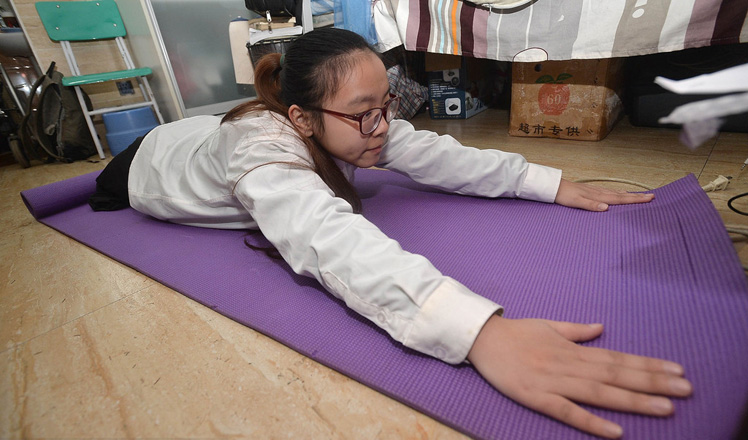
 Canadian college offers flying classes to legless girl
Canadian college offers flying classes to legless girl
 Fashion buyer scours the world for trendy items
Fashion buyer scours the world for trendy items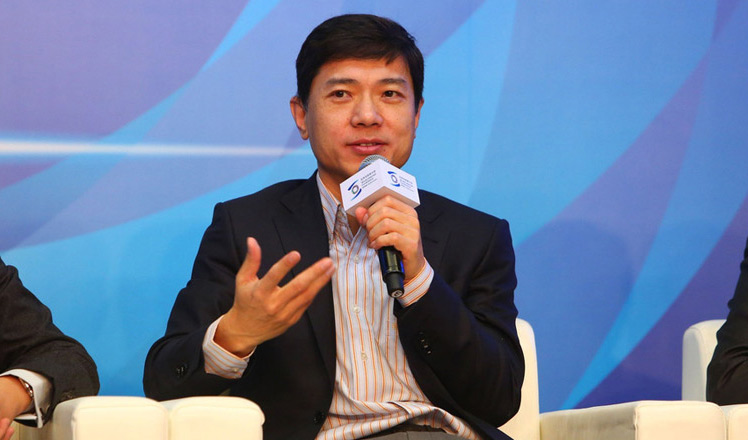
 Tycoons exchange views on building a cyberspace community of shared future
Tycoons exchange views on building a cyberspace community of shared future
 Snow scenery of Taklimakan Desert in Xinjiang
Snow scenery of Taklimakan Desert in Xinjiang
 East China province gets 1st subway line
East China province gets 1st subway line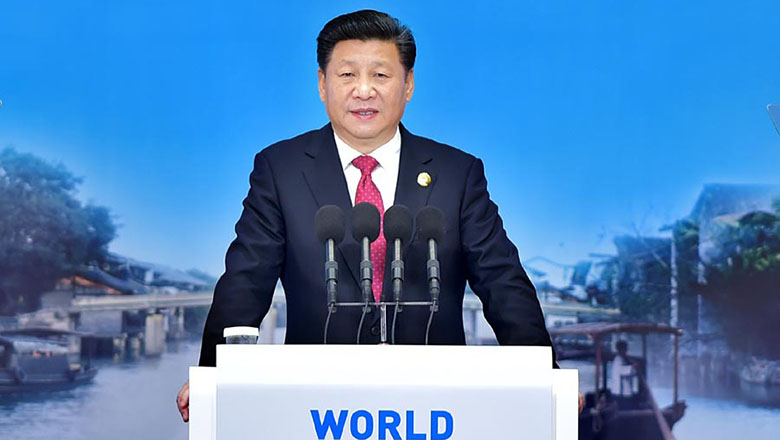
 President Xi delivers keynote speech at World Internet Conference
President Xi delivers keynote speech at World Internet Conference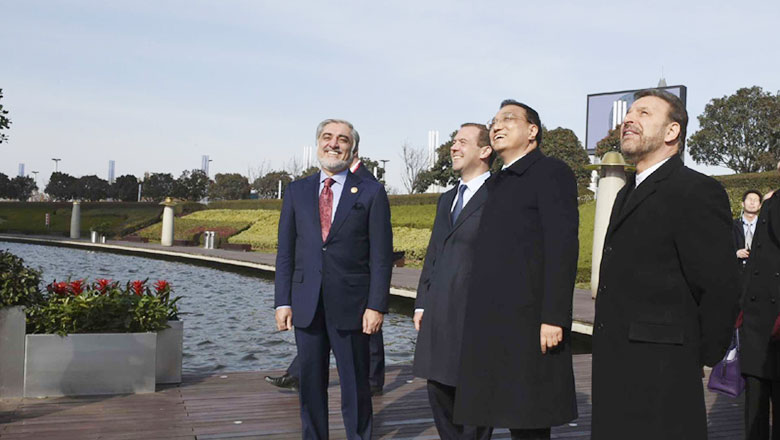
 Chinese premier shows Zhengzhou's fast growth to SCO leaders
Chinese premier shows Zhengzhou's fast growth to SCO leaders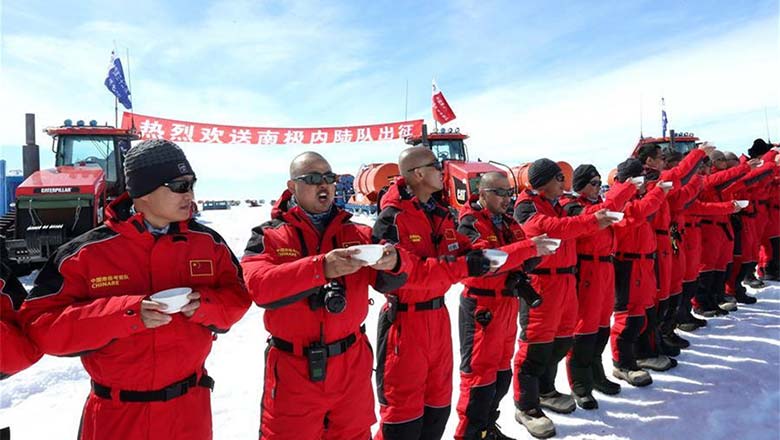
 Two Chinese Antarctic expedition teams set off for Antarctic inland
Two Chinese Antarctic expedition teams set off for Antarctic inland
Most Viewed
Editor's Picks

|

|

|

|

|

|
Today's Top News
Shooting rampage at US social services agency leaves 14 dead
Chinese bargain hunters are changing the retail game
Chinese president arrives in Turkey for G20 summit
Islamic State claims responsibility for Paris attacks
Obama, Netanyahu at White House seek to mend US-Israel ties
China, not Canada, is top US trade partner
Tu first Chinese to win Nobel Prize in Medicine
Huntsman says Sino-US relationship needs common goals
US Weekly

|

|









